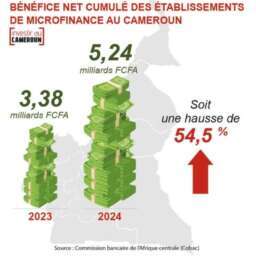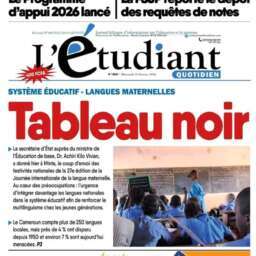Are you in Cameroon and looking to fast-track your education by earning a bachelor’s degree in as little as one year? With the growing availability of online education, it’s now possible to complete a legitimate degree from internationally recognized universities without ever leaving the country. By leveraging the right strategies, tools, and competency-based universities, you can achieve your degree faster, save money, and open doors to better career opportunities.
Here’s how Cameroonian students can take advantage of these programs to earn a bachelor’s degree in one year or less.
Step-by-Step Guide to Earning a Degree in One Year
1. Assess What You Already Have
The first step to earning your degree quickly is evaluating your current qualifications. This allows you to transfer credits or bypass certain classes based on what you’ve already achieved. Here’s what to consider:
- Previous College Credits: If you’ve taken any college-level courses in Cameroon, check if they can be transferred.
- Certifications & Job Experience: Many competency-based universities recognize professional certifications and relevant work experience as valid for credit.
- Military Experience or AP/IB Exams: Credits from military service or high school exams like AP or IB may also be accepted for college credit.
Pro Tip: Make sure to gather all relevant documents, such as transcripts and certifications, to present to the university for evaluation. Some universities may require a credential evaluation from services like World Education Services (WES).
2. Choose the Right Competency-Based University
The key to completing your degree in a year is selecting a competency-based university. These institutions allow students to progress at their own pace based on their mastery of the subject, rather than sticking to a rigid semester system.
Top Competency-Based Schools:
- Western Governors University (WGU)
- Thomas Edison State University (TESU)
- Excelsior College
- Southern New Hampshire University (SNHU)
- University of Maine at Presque Isle (UMPI)
- Charter Oak State College (COSC)
These universities are known for being flexible with credit transfers and allowing students to accelerate their degree completion based on knowledge rather than time spent in the classroom.
3. Be Prepared for English Proficiency Tests
As a student from Cameroon, you will most likely need to demonstrate your proficiency in English when applying to these universities. Since the primary language of instruction at these institutions is English, you may be required to take a language proficiency test such as:
- IELTS (International English Language Testing System)
- TOEFL (Test of English as a Foreign Language)
What to Do:
- Verify Requirements: Contact your chosen university to confirm if an English proficiency test is required.
- Prepare for the Test: Register for IELTS or TOEFL and prepare using online resources or test prep materials. You can take these exams at test centres in Cameroon or, in some cases, online.
- Submit Scores: Ensure that your test scores are sent directly to the university during application.
Pro Tip: Some universities may waive this requirement if you have studied in English before. Be sure to ask about any possible waivers.
4. Test Out of Classes
To significantly reduce the time required to complete your degree, you can test out of general education and core classes using various methods:
- CLEP Exams: The College-Level Examination Program (CLEP) lets you test out of a wide range of subjects. It’s affordable and can save you time.
- Third-Party Providers: Use platforms like study.com, StraighterLine, or Sophia.org to complete online courses that many universities accept for credit.
Pro Tip: With focused effort, you can realistically complete one course per week using these platforms. This pace allows you to finish most of your coursework in less than a year.
5. Pre-Study for Remaining Classes
Once you’ve transferred as many credits as possible, it’s time to prepare for the remaining courses. Even if you cannot test out of some classes, you can speed up the process by pre-studying the material using free or affordable online resources.
Best Resources for Pre-Studying:
- Khan Academy: A free platform offering lessons in subjects like math, economics, and science.
- freeCodeCamp: Perfect for those pursuing degrees in programming or computer science.
- Harvard and MIT Open Courses: Free online courses from top universities, which provide access to textbooks, lectures, and practice problems.
- YouTube: Educational channels that cover a wide range of subjects.
By the time you enrol in these remaining classes, you’ll already be familiar with the material, allowing you to breeze through them quickly.
6. Enroll in the Competency-Based Program
Now that you’ve tested out of courses and pre-studied for the remaining ones, you’re ready to enrol in a competency-based university. Many of these universities, like WGU and UMPI, offer flat-rate tuition, meaning you pay per term rather than per course. This allows you to complete as many courses as possible within a set period, typically six months.
If you’ve followed the previous steps, you’ll have minimal coursework left, and because you’ve already studied the material, you can finish the courses at an accelerated pace.
7. Finish Your Degree and Graduate
By taking full advantage of credit transfers, testing out of courses, and pre-studying for remaining subjects, you can earn your degree in as little as one year or even less. Depending on the number of credits you can transfer and the pace at which you study, many students can complete their bachelor’s degree in six to twelve months.
Why Competency-Based Education Works
Competency-based education focuses on your ability to demonstrate mastery of a subject, not on how long you spend in class. This means you can skip lectures and assignments on material you already know, speeding up the time it takes to complete your degree.
Benefits for Cameroonian Students:
- Study Online: All coursework is completed online, so there’s no need to travel abroad.
- Affordable: These programs often cost significantly less than traditional degree programs. Some universities, like WGU, offer flat-rate tuition per term, meaning the faster you complete your degree, the more you save.
- Flexible Learning: You can complete your degree at your own pace, making it ideal for working professionals or those with other commitments.
Conclusion: Earning Your Degree in One Year is Possible
For students in Cameroon, earning a legitimate bachelor’s degree in one year or less is entirely possible. By choosing the right competency-based university, leveraging credit transfers, testing out of courses, and preparing for language proficiency requirements like IELTS or TOEFL, you can fast-track your education and start your career sooner.
Ready to get started? Explore these strategies further by checking out detailed videos that dive deeper into how to make it work for you:




































